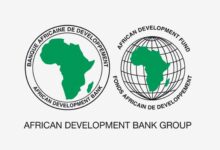NNPC Weekly Report: Company aims for higher efficiency, profitability with motivated wotrkforce

The weekly activities of the Nigerian National Petroleum Company (NNPC) started with staff been urged to brace for higher levels of efficiency in 2022 as it now operates under the Companies and Allied Matters Act (CAMA).
Addressing the workforce at the maiden corporate wide town-hall meeting for the year 2022, the GMD/CEO of the NNPC, Malam Mele Kyari, outlined the changes ahead.
Kyari assured that no member of the NNPC workforce would lose his or her job as a result of the impending reforms to be introduced under the PIA transition but that they must be productive, accountable and transparent in their work.
He called for optimum dedication by staff in the discharge of their duties in order to enhance profitability, stressing that under the PIA, the company would operate as a contractor to the nation at large.
The NNPC CEO also said that Nigerians expected nothing but greater levels of profit.
Kyari explained that all assets transfer and structural changes associated with the transition process would be completed before the end of the year.
Speaking on behalf of staff of the NNPC, the Group Executive Director, Corporate Services, Mrs Aisha Katagum, pledged the commitment of the entire workforce to achieving the set tasks as spelt out by the GMD/CEO.
Meanwhile, the NNPC Limited executed various Memoranda of Understanding (MoUs) and agreements with some joint venture partners, strategic allies and stakeholders in 2021.
These agreements were geared towards strengthening the corporation’s profit by maximising capacities across its operational value chain.
They were also designed in line with the national objectives of the oil and gas industry on the repositioning of gas for rapid domestic, regional and export market expansion.
The maiden execution of these agreements commenced with the signing of the Final Investment Decision (FID) by NNPC and partners, DSV Engineering and the Nigerian Content Development and Monitoring Board (NCDMB), for the 3.6billion dollars Brass Methanol Plant in Odioma, Brass Island, Bayelsa.
The project, upon completion, would be the largest methanol plant in Africa and the first in Nigeria.
The project anchored by the Brass Fertiliser and Petrochemical Company Limited (BFPCL), is an incorporated entity owned by the NNPC, DSV Engineering, and the NCDMB
Speaking at the event, the GMD/CEO of NNPC Limited, Malam Mele Kyari said he was pleased with the current efforts by the Federal Government to provide value for Nigeria’s gas resources.
He describing the FID as one of the most significant investment strides in the gas sector in recent times, noting that the project was in tandem with the earlier declaration of 2020 as the year of gas and 2021-2030 as the decade of gas by the Minister of State for Petroleum Resources.
The construction phase of the project would create about 30,000 temporary jobs in addition to the 5,000 permanent jobs which would come in place when the plant becomes operational.
Another significant gas development agreement was the signing of a 260 million dollars deal with the Assa-North-Ohaji South (ANOH) Gas Processing Company Limited (AGPC) for the financing of the ANOH Gas Project in February.
The ANOH Gas Processing Company Limited (AGPC) is an incorporated Joint Venture owned 50:50 by the Nigerian Gas Company (NGC), a wholly owned subsidiary of the NNPC, and Seplat Petroleum Development Company.
The ANOH Gas Project which has been described as a game changer by stakeholders is another milestone on the journey to deliver more gas to the domestic market for the promotion of power generation and rapid industrialisation in the country.
It would deliver 300 million standard cubic feet of gas per day (mscfd) and 1,200megawatts of power when completed.
The gas development and commercialisation programme of the NNPC received another boost with the execution of the Oil Mining Lease (OML) 143 Gas Development Agreement (GDA) by the NNPC and its partner, Sterling Oil Exploration and Production Company (SEEPCO).
The project would boost the nation’s gas production by 1.2trillion cubic feet (tcf).
The GMD/CEO NNPC Ltd, Kyari, said the gas from the project would be processed at the Ashtavinayak Hydrocarbon Limited (AHL) 125million standard cubic feet (mmscf) of gas per day gas plant located in Kwale, Delta State.
Group Managing Director of SEEPCO, Mr Tony Chukwueke, said the OML 143 GDA was unique in two ways
“First, it is the first Agreement in Nigeria that fully separates gas development from oil production, an arrangement that will enable holistic development of the gas potential in the block.
“And it is the first of its kind to expressly include terms that encourages the contractor to be effective in cost management thereby passing on significant revenue to the Federal Government, NNPC and other stakeholders.”
Also in May 2021, the GMD/CEO, Kyari led the NNPC to sign a series of agreements with Shell Nigeria Exploration and Production Company (SNEPCo) and other PSC partners.
The PSC partners include Total Exploration and Production Nigeria Limited (TEPNG), Esso Exploration and Production Nigeria Limited (EEPNL) and Nigerian Agip Exploration (NAE) to renew Oil Mining Lease (OML) 118 for another 20 years.
The execution of these agreements resolved the disputes around the Deep Offshore Block, OML 118, leading to the renewal of that acreage with the prospect of a new 10 billion naira investment in the development of the Bonga South-East Field.
The five agreements signed include, Dispute Settlement Agreement, Settlement Agreement, Historical Gas Agreement, Escrow Agreement and Renewed PSC Agreement; all these agreements would further boost the nation’s oil production.
It is worthy of note that the OML 118 dispute lasted for over 12 years before Kyari stepped in.
His conciliatory leadership knife has cut through several seemingly irreconcilable and protracted disputes in the Petroleum Industry.
This is yet another pointer to the fact that NNPC places premium in ensuring and sustaining cordial and peaceful relationship amongst all its stakeholders and partners.
Still within the year 2021, the drive by the Management of the Nigerian National Petroleum Corporation (NNPC) to boost in-country refining capacity was further bolstered by the signing of the contracts for the rehabilitation of the 210,000 barrels per day capacity Port Harcourt Refinery in Alesa-Eleme, Rivers and the Warri and Kaduna Refineries, in July and August.
The PHRC rehabilitation project which had a completion timeline of between 18 and 44 months under a three-phase arrangement was awarded to Milan based Tecnimont SpA at a lump sum contract price of 1.5 billion dollars, inclusive of VAT and other statutory payments.
An elated GMD of the NNPC, Kyari, described the PHRC rehabilitation project as a dream come true, noting that the project was in line with President Muhammadu Buhari’s promise to the Nigerian people to make the refineries work.
In August, the NNPC in response to a Presidential directive intervened and provided a solution to the perennial electric power supply challenge in Maiduguri, Borno State.
The intervention saw the execution of the Engineering, Procurement, and Construction (EPC) and Equipment Procurement contracts for a 50Megawatts (MW) Emergency Power Project in Maiduguri.
The project which had become an integral part of ongoing efforts to deepen the NNPC’s domestic gas utilisation plan for the nation’s socio-economic growth had China Machinery Engineering Company (CMEC) as the EPC contractor while General Electric (GE) became the equipment manufacturer.
Speaking at the ground breaking ceremony, the GMD/ CEO the NNPC, Kyari, explained that the Corporation through its subsidiary, NNPC Gas and Power Investment Company (NGPIC), decided to intervene in the Maiduguri power situation by undertaking the project which would be fired with Liquefied Natural Gas (LNG) and run commercially.
The Ajaokuta–Kaduna–Kano Natural Gas Pipeline (AKK) was also conceptualised to transport natural gas from Ajaokuta, in Kogi State to Kano, in Kano State, through several states and urban centers, as part of the Trans Nigeria Gas Pipeline.
Three of the contiguous states, Kaduna, Kano and Nasarawa signed different agreements with the NNPC in conjunction with the Gas Aggregation Company of Nigeria, GACN for expansion and utilisation of gas supply to their states.
At the at the MoU Execution Ceremony, the GMD/CEO of NNPC, Malam Mele Kyari, described the signing of the agreement as yet another watershed in the Federal Government’s Decade of Gas initiative which is aimed at utilising the nation’s abundant gas resources to power the nation’s economy.
Kaduna state governor, Malam Nasir El- Rufai said the State Government was delighted with the prospect of having an additional energy source to power businesses in the state.
In Nasarawa, the signing of the MoU which was the climax of the well-organised Nasarawa Business Roundtable witnessed by the Nasarawa State Governor, Engr. Abdullahi Sule, GMD/CEO NNPC Limited, Kyari, and the Group Executive Director Gas & Power, NNPC Ltd- Mr Mohammed Abdulkabir Ahmed.
Others at the event were the Group General Manager, Group Public Affairs NNPC, Malam Garba Muhammad, the MD of Nigerian Gas Marketing Company, Eze Justin Ezeala, and the Chief Executive Officer (CEO) of Axxela, Mr Bolaji Osunsanya.
Gov. Abdullahi Sule appealed to the indigenes of the State to key into the respective opportunities across the gas value chain such as gas distribution, CNG Stations, captive/embedded power generation, LPG marketing, gas flare commercialization among others.
It was noteworthy that these various agreements represent a major step in NNPC commercialisation drive and more importantly, the federal government’s gas expansion program.
With the signing of the PIA and the subsequent transformation of NNPC to a wholly commercial entity, operating under the companies and allied matters act, the multiplier effects of these agreements on the ongoing reforms of the NNPC and the petroleum industry are indeed enormous.
(NAN)












